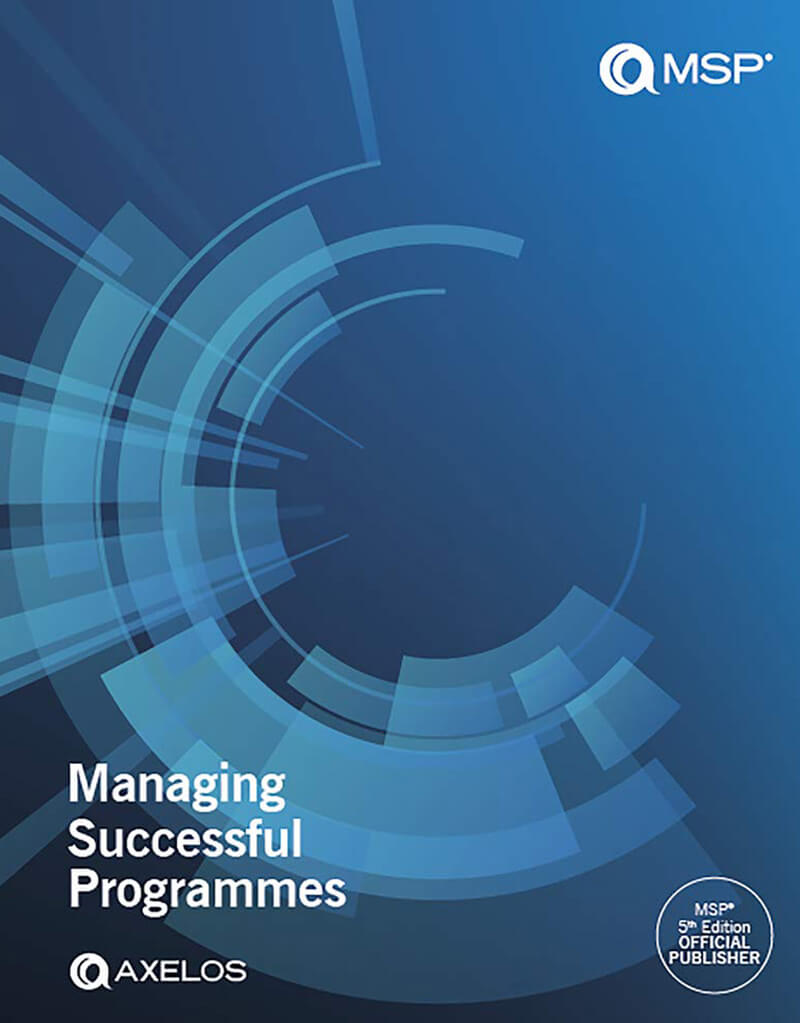Benefits of ITIL Certification

ITIL, or IT Infrastructure Library, is a globally recognised framework for IT service management (ITSM). It provides a set of best practices and guidelines for delivering IT services that are aligned with the needs of the business. ITIL is used by organisations of all sizes and in various industries, including healthcare, finance, and technology.
Originally developed in the 1980s by the Central Computer and Telecommunications Agency (CCTA) of the British government, the CCTA was tasked with improving the efficiency and effectiveness of IT services within the UK government. ITIL was first published in 1989, and it has since become the most widely used ITSM framework in the world.
The ITIL certification is recognised by the International Organization for Standardization (ISO) as an international standard for ITSM. It’s also endorsed by the Information Systems Audit and Control Association (ISACA), the world’s leading organisation for IT governance and control.
What is ITIL Certification?
ITIL certification is a professional credential demonstrating an individual’s knowledge and skills in IT service management (ITSM) based on the ITIL framework. ITIL is a globally recognised framework that provides a set of best practices and guidelines for delivering IT services.
The ITIL framework provides a comprehensive approach to ITSM, covering everything from service strategy and design to service delivery and support. ITIL is based on a number of key principles, including customer focus, value-driven, risk-based, and continual improvement.
Why Companies are Adopting ITIL Management
The digital transformation has led to a dramatic increase in the use of IT services by businesses of all sizes. This has increased the complexity of IT service management and the need for effective ITSM practices.
ITIL provides a structured approach to ITSM that can help organisations manage the complexity of IT service delivery. ITIL can help organisations to improve their efficiency, productivity, and customer satisfaction. This certificate helps organisations to reduce costs and mitigate risks.
ITIL is a flexible framework that can be adapted to meet the specific needs of any organisation. Organisations use ITIL to develop tailor-made ITSM strategies that are aligned with their business goals and objectives.
Benefits of ITIL Certification for Professionals:
There are many benefits of ITIL certifications and getting other alternative ITIL certification courses.
Professional Growth:
- Acquiring a systematic approach to IT best practices: ITIL certification provides a structured and systematic approach to IT service management, based on best practices from around the world. This can help professionals to develop their skills and knowledge in a comprehensive and holistic way.
- Recognition in the IT community and among peers: ITIL certification is a globally recognised credential demonstrating an individual’s knowledge and skills in IT service management. This can help professionals to gain recognition and respect from their peers and employers.
Increased Efficiency:
- Skills to streamline IT services, leading to better productivity and service delivery: ITIL certification can help professionals develop the skills and knowledge they need to streamline IT services and improve productivity. This can lead to better service delivery for customers and end users.
- Enhancing the user experience by focusing on their specific needs: ITIL certification emphasises the importance of focusing on the needs of the customer. This can help professionals to develop IT services that are more user-friendly and meet the specific needs of the customer base.
Global Recognition:
- ITIL’s international benchmark for service management skills: ITIL is an international benchmark for IT service management skills. ITIL certification is recognised by organisations around the world, giving professionals a global advantage in the job market.
- Opportunities for higher-paid roles and career advancement: ITIL certification can open up opportunities for higher-paid roles and career advancement. ITIL-certified professionals are in high demand in many industries, and they often earn more than their non-certified counterparts.
Skill Enhancement:
- Comprehensive understanding of ITIL best practices: ITIL certification provides a comprehensive understanding of ITIL best practices for IT service management. This can help professionals improve their skills and knowledge in all aspects of IT service management, from service strategy and design to service delivery and support.
- Confidence in implementing ITIL methodologies in real-world scenarios: ITIL certification gives professionals the confidence they need to implement ITIL methodologies in real-world scenarios. This can help organisations to improve their IT service delivery and achieve their business goals.
Flexibility:
- ITIL’s global applicability across diverse industries: ITIL is a globally applicable framework that can be used by organisations in all industries. ITIL certification is therefore a valuable investment for professionals who want to work in a variety of different industries.
- Meeting the increasing demand for ITIL-certified professionals: The demand for ITIL-certified professionals is increasing as more and more organisations adopt ITIL. ITIL certification can help professionals to meet this demand and secure high-paying jobs.
Overall, ITIL certification is a valuable investment for professionals who want to advance their careers in IT service management. ITIL certification can help professionals improve their skills and knowledge, increase their earning potential, and gain recognition in the IT community.

Benefits for Organisations
Improved Customer Satisfaction:
- Delivering services with a professional approach: ITIL helps organisations to deliver IT services professionally and efficiently. This can lead to improved customer satisfaction and loyalty.
- Enhancing user experience and satisfaction rates: ITIL focuses on delivering IT services that meet the customer’s needs. This can help organisations to improve the user experience and satisfaction rates.
Effective Communication:
- Standardised ITIL language for clear and concise communication: ITIL provides a standardised language for IT service management. This can help to improve communication between IT teams and other departments, as well as between IT professionals and customers.
- Bridging gaps between IT teams and other departments: ITIL can help to bridge the gap between IT teams and other departments by providing a common framework for understanding and managing IT services. This can lead to improved collaboration and cooperation between departments.
Efficiency Boost:
- Implementing ITIL methods to optimise processes and workflows: ITIL provides several methods and tools for optimising IT service management processes and workflows. This can help organisations to improve their efficiency and productivity.
- Achieving organisational goals with improved efficiency: By improving their efficiency and productivity, organisations can achieve their organisational goals more effectively.
Risk Management:
- Proactive approaches to handle potential service disruptions: ITIL helps organisations to identify and assess risks to IT service delivery. This allows organisations to develop proactive approaches to handling potential service disruptions and minimising downtime.
- Ensuring business continuity and minimising downtimes: By proactively managing risks, organisations can ensure business continuity and minimise downtime in the event of a service disruption.
Cost Management:
- Detailed insights into IT costs and resource allocation: ITIL provides organisations with detailed insights into IT costs and resource allocation. This information can be used to optimise budgets and reduce unnecessary expenditures.
Overall, organisations of all sizes get many benefits of ITIL certification. ITIL can help organisations improve customer satisfaction, efficiency, risk management, and cost management.
In addition to the benefits listed above, ITIL can also help organisations to:
- Improve their compliance with industry regulations
- Attract and retain top IT talent
- Increase their competitive advantage
If you are considering adopting ITIL, I encourage you to do your research and learn more about the benefits ITIL certification can offer your organisation.
Empower Your IT Service Management Journey with ITIL4® Certification
ITIL, the IT Infrastructure Library, stands as a beacon in the world of IT service management (ITSM), offering a comprehensive set of best practices that align IT services with business needs. Originating from the British government’s initiative to enhance IT service efficiency, ITIL has evolved to become the gold standard in ITSM, recognised and endorsed by global organisations. As the digital landscape continues to evolve, the demand for ITIL-certified professionals is on the rise. Our ITIL4® Service Management courses are designed to provide you with the knowledge, skills, and certification to navigate the complexities of ITSM, ensuring you stay ahead in this dynamic field.
ITIL Certification Levels
The ITIL certification scheme is a tiered structure, with five levels of certification, each with its own prerequisites and requirements. The five levels are:
- ITIL Foundation: This is the entry-level certification and provides a basic understanding of the ITIL framework and its key concepts.
- ITIL Practitioner: This certification demonstrates that an individual has the knowledge and skills to apply the ITIL framework to real-world situations. To achieve ITIL Practitioner certification, individuals must have passed the ITIL Foundation exam and pass one of the following ITIL Specialist modules:
- ITIL Service Strategy
- ITIL Service Design
- ITIL Service Transition
- ITIL Service Operation
- ITIL Continual Service Improvement
- ITIL Managing Professional (MP): This certification demonstrates that an individual has the knowledge and skills to manage IT services based on the ITIL framework. To achieve ITIL Managing Professional certification, individuals must have passed the ITIL Foundation exam, passed two ITIL Specialist modules, and passed the ITIL Managing Professional Transition exam.
- ITIL Strategic Leader (SL): This certification demonstrates that an individual has the knowledge and skills to lead IT service management initiatives within an organisation. To achieve ITIL Strategic Leader certification, individuals must have passed the ITIL Foundation exam, passed the ITIL Managing Professional Transition exam, and passed the ITIL Strategic Leader exam.
- ITIL Master: This is the highest level of ITIL certification and demonstrates that an individual has a deep understanding of the ITIL framework and its application to IT service management. To achieve ITIL Master certification, individuals must have passed the ITIL Foundation exam, passed the ITIL Managing Professional Transition exam, passed the ITIL Strategic Leader exam, and completed 15 credits of ITIL Specialist modules.
The ITIL certification scheme is designed to provide individuals with the knowledge and skills they need to succeed in a variety of IT service management roles. ITIL certification is a valuable investment for IT professionals who want to advance their careers and make a significant contribution to their organisations.
Conclusion
I encourage all IT professionals to consider getting ITIL certified. ITIL certification can help you achieve your career goals and significantly contribute to your organisation.
ITIL is a pivotal framework for modern IT service management. It provides a comprehensive set of best practices and guidelines for delivering IT services that are aligned with the needs of the business and its customers. Getting an ITIL certification helps professionals improve their skills and knowledge, increase their earning potential, and gain recognition in the IT community.






